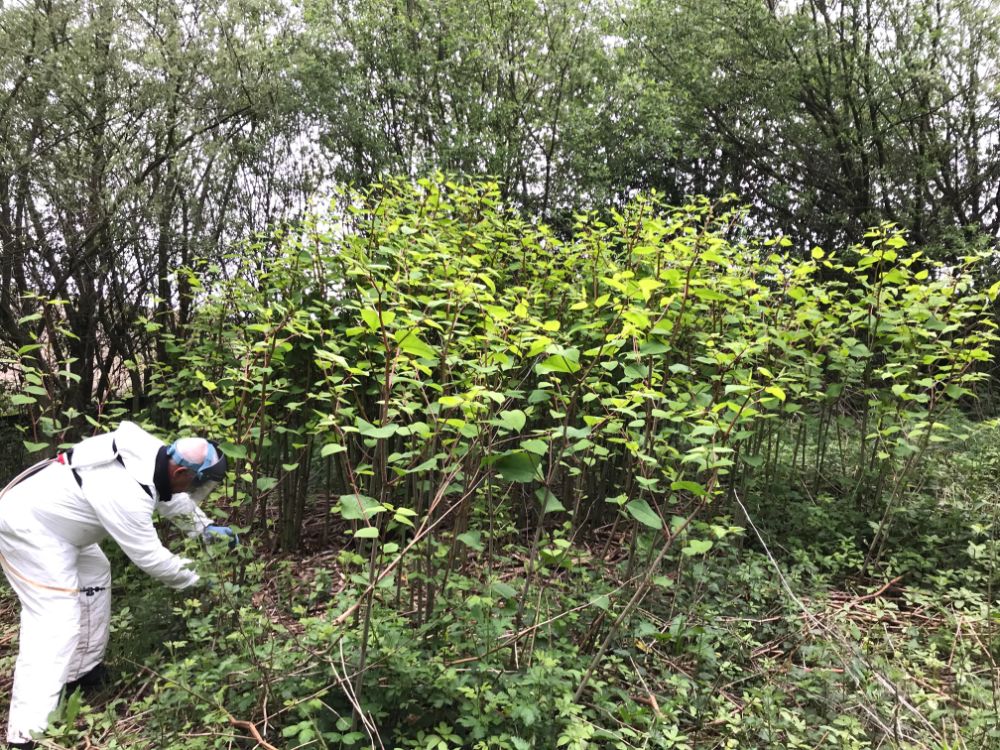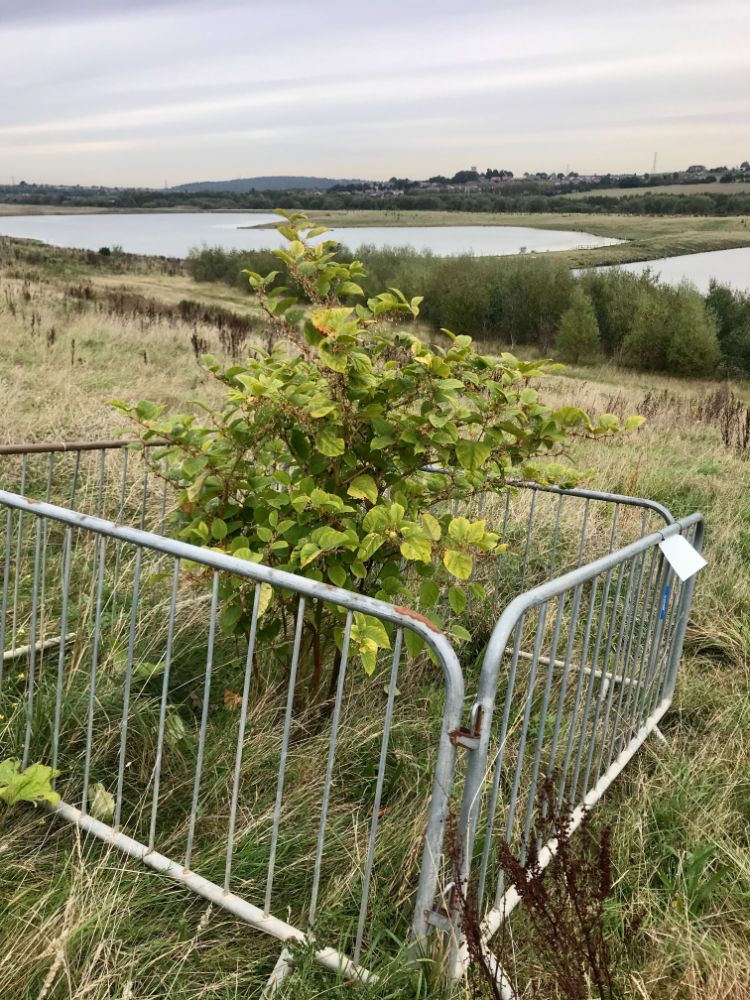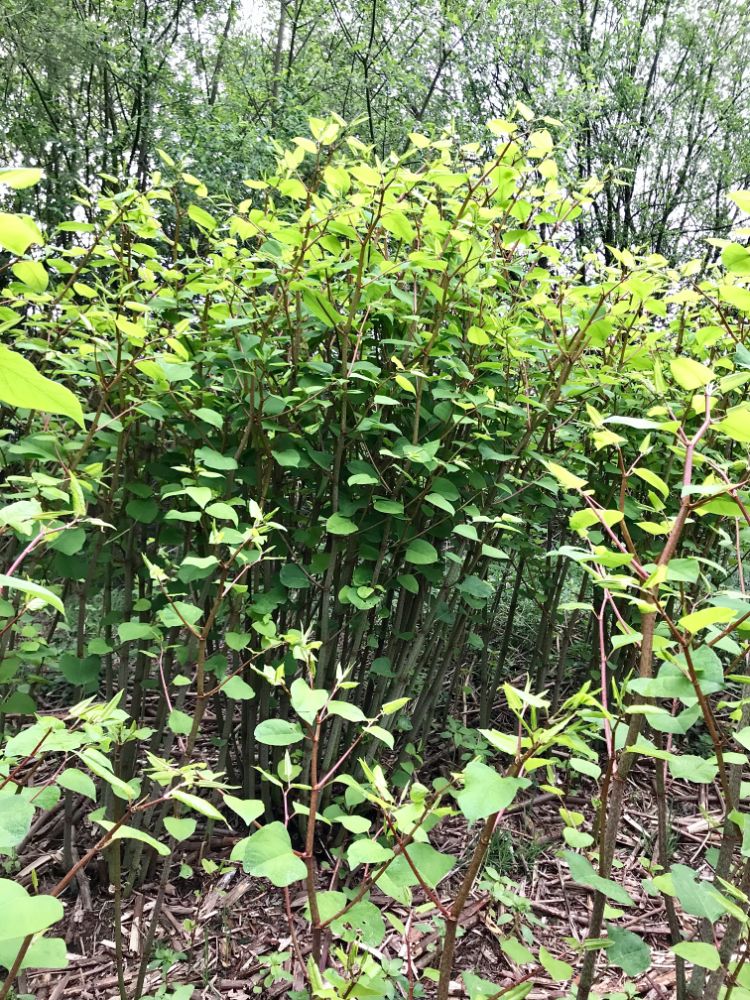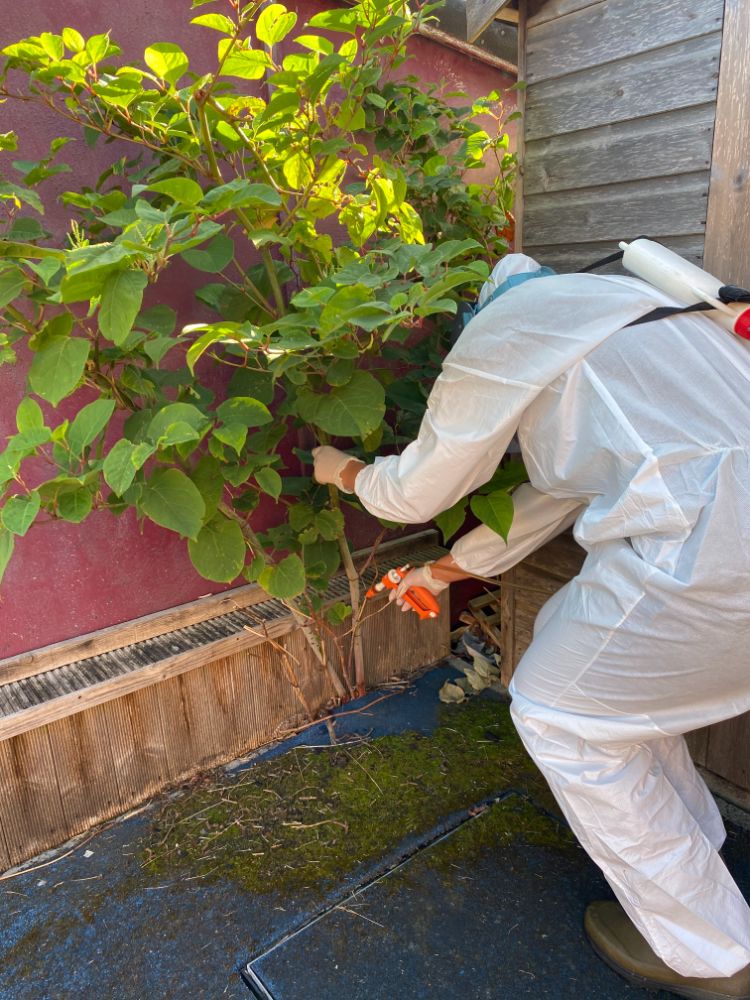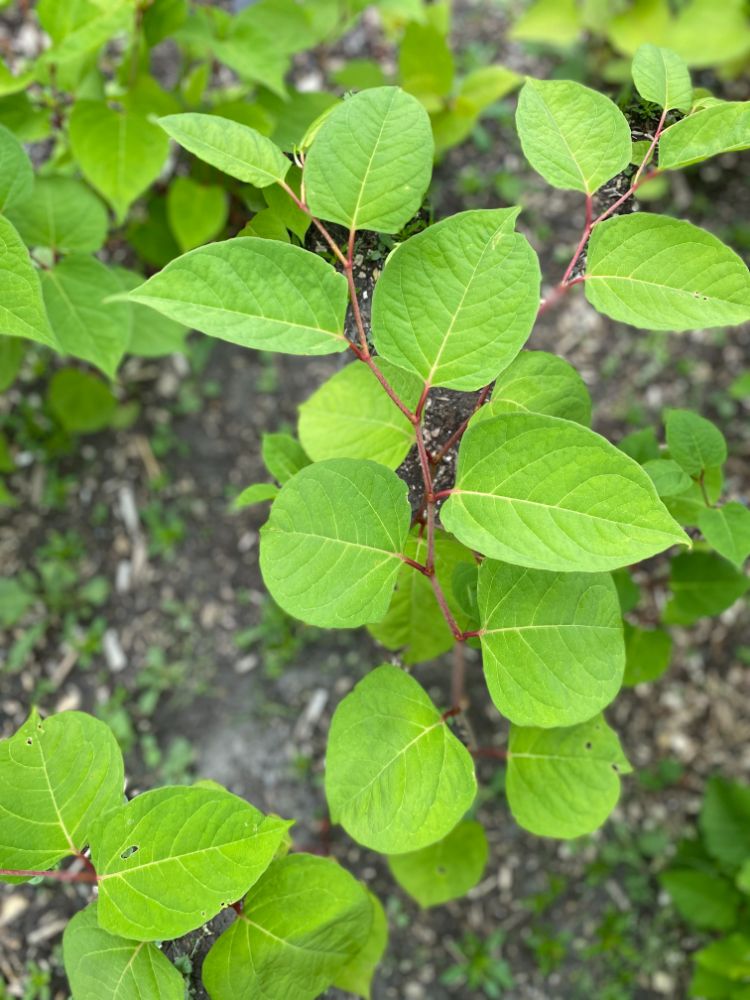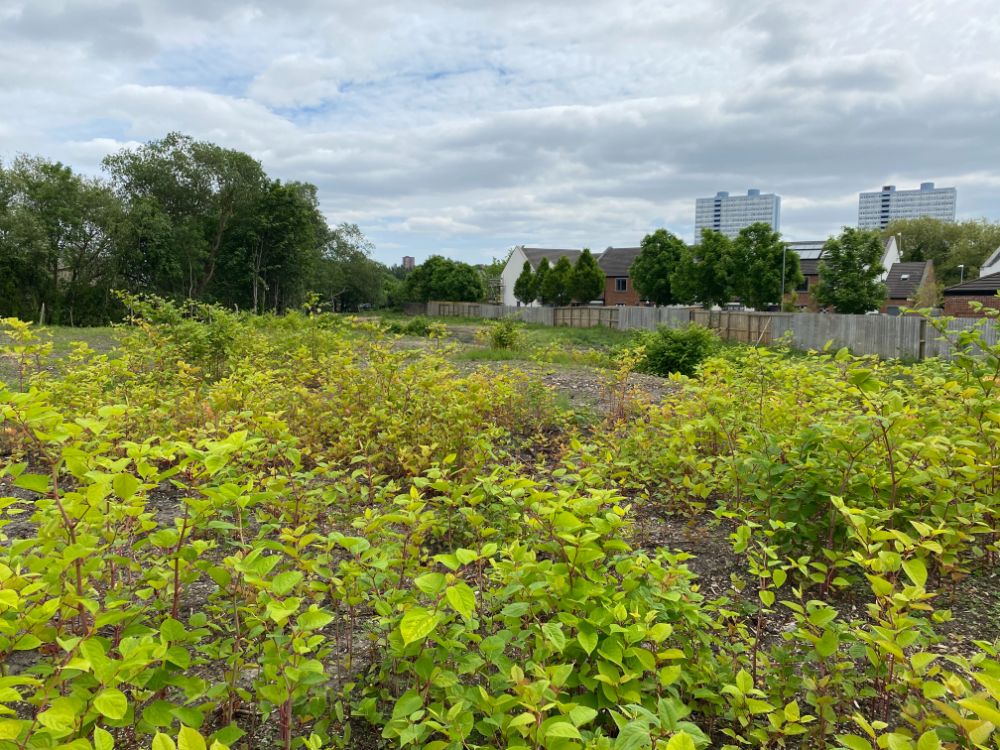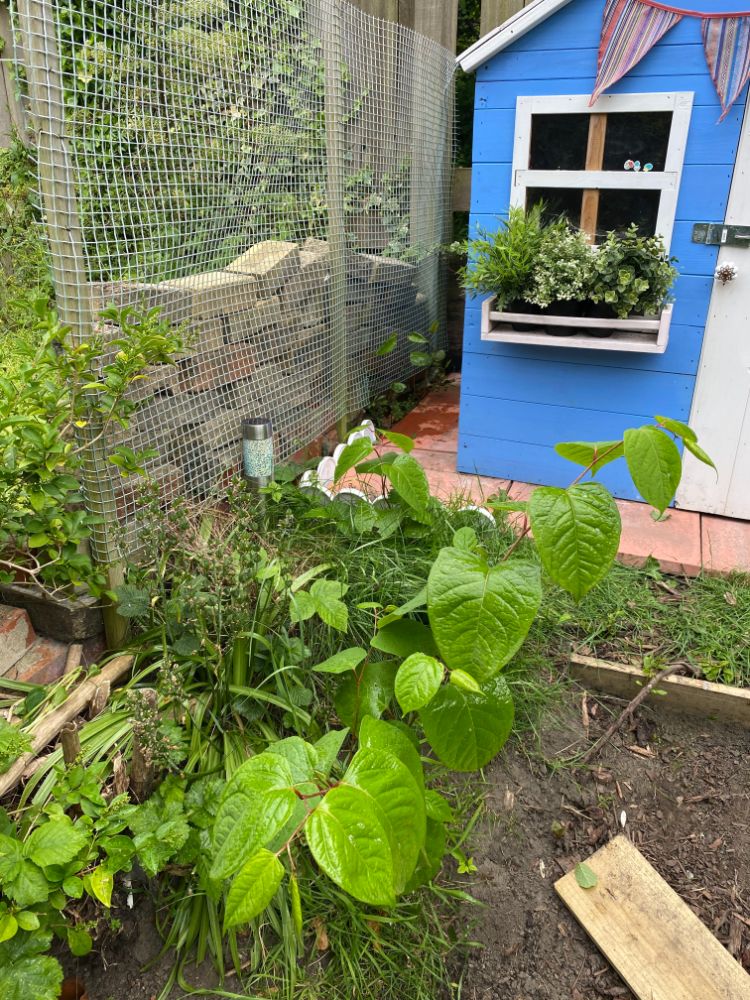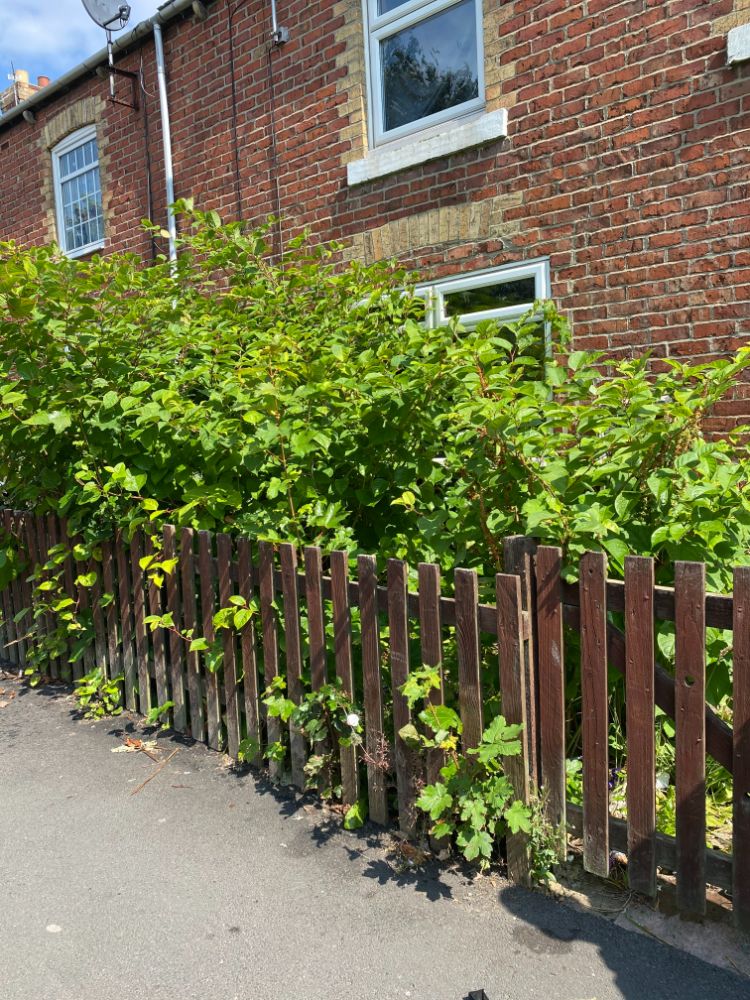Herbicidal treatment of Japanese Knotweed is far more cost-effective, environmentally sustainable, and typically uses less resources, than excavation programmes.
All of Appleby Environmental’s herbicidal control programmes are carried out by knowledgeable, experienced and qualified operatives who are fully certified by NPTC. Specialist members of our team are also qualified Certificated Surveyors in Japanese Knotweed (CSJK).
Ensuring we always work in line with industry best practice guidance and Codes of Practice such as the PCA Code of Practice for the Management of Japanese Knotweed, Appleby Environmental Services Ltd can offer the following Japanese Knotweed control and consultancy services:
- Japanese Knotweed management plans
- Implementation of herbicidal Japanese Knotweed control treatments
- Japanese Knotweed surveys carried out by our Certificated Surveyor in Japanese Knotweed (CSJK)
- Verification reports to confirm the presence of Japanese Knotweed
- Watching briefs and toolbox talks
Japanese Knotweed can be found in a variety of locations, often growing in damp conditions such as river banks. However, Japanese Knotweed can also commonly be discovered on railway ballasts, derelict land as well as domestic gardens.
Dependant on the time of year, Japanese Knotweed can look different throughout the seasons. Although, the most easily identifiable trait of Japanese Knotweed is the leaves which are heart/shield shaped along with stems which form a zig-zag pattern, typically with one stem shoot per node.
We offer a free Japanese Knotweed identification service, so if you suspect that you have Japanese Knotweed present on your land but are unsure if the plant in question is Japanese Knotweed – please email us a photograph and we can confirm the presence of Japanese Knotweed or otherwise (subject to image quality).
As Japanese Knotweed is listed within Schedule 9 of The Wildlife and Countryside Act 1981; this makes it an offence to cause Japanese Knotweed to grow in the wild under these provisions.
For any further information on any of the Japanese Knotweed services we offer or for a free quotation, please do not hesitate to contact us today.
What to do if you have Japanese Knotweed
It is important that you do not use standard green waste disposal methods to dispose of any Japanese Knotweed materials or contaminated soils as The Environmental Protection Act 1990 states that Japanese Knotweed is classed as ‘controlled waste’ and as such, must be removed by licenced organisations and disposed of safely at a licenced landfill site that can accept Japanese Knotweed according to the Environmental Protection Act (Duty of Care) Regulations 1991.
Here’s a few more Do’s and Don’ts in regards to Japanese Knotweed:
-
 Do prevent any disturbance of the Japanese Knotweed; especially throughout the growing season, and try to avoid disturbing any ground surrounding the plants at any time of the year.
Do prevent any disturbance of the Japanese Knotweed; especially throughout the growing season, and try to avoid disturbing any ground surrounding the plants at any time of the year.
-
 Do contact a Japanese Knotweed professional such as Appleby Environmental Services Ltd who can carry out a survey and implement a management and control programme as soon as possible.
Do contact a Japanese Knotweed professional such as Appleby Environmental Services Ltd who can carry out a survey and implement a management and control programme as soon as possible.
-
 Do be aware of the legal accountabilities surrounding Japanese Knotweed.
Do be aware of the legal accountabilities surrounding Japanese Knotweed.
-
 Do not mow, strim or cut Japanese Knotweed as this can cause the Knotweed to spread.
Do not mow, strim or cut Japanese Knotweed as this can cause the Knotweed to spread.
-
 Do not allow Japanese Knotweed to spread into any adjacent properties or land as this could result in legal action being taken against you by your neighbour or adjacent land owner.
Do not allow Japanese Knotweed to spread into any adjacent properties or land as this could result in legal action being taken against you by your neighbour or adjacent land owner.
-
 Do not add Japanese Knotweed to any compost area or bins as this can lead to Knotweed contaminating and growing in your compost area.
Do not add Japanese Knotweed to any compost area or bins as this can lead to Knotweed contaminating and growing in your compost area.
Contact Appleby Environmental Services Ltd today ...
Head Office: 01670 812033
Mobile: 07989 096676
Mobile: 07446 971564

